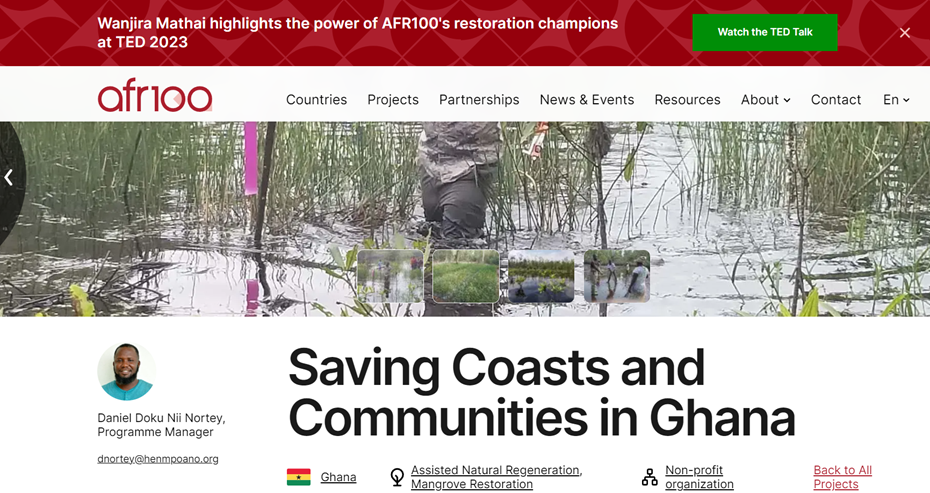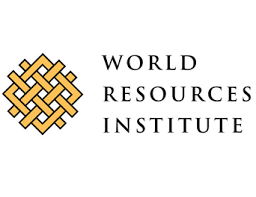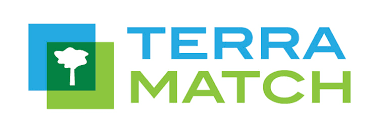The AFR100 Project
The AFR100 project is funded by One Tree Planted, TerraMatch and World Resources Institute. Its primary goal is to plant 200,000 mangrove seedlings covering 50 hectares of degraded mangrove forests within the Greater Amanzule Wetlands (GAW) in the Western Region in the next five years. The Project intends to achieve this by working with community volunteers, officers from the district assemblies, Wildlife Division of the Forestry Commission and Fisheries Commission of Ghana and leveraging on the long-term partnership it has enjoyed with these partners.
The overall objective is to restore degraded mangrove ecosystems which serves as habitat and feeding ground for IUCN listed endangered species such as the Geoffroy’s black–and-white Colobus (Colobus vellerosus), Diana monkey (Cercopithecus Diana), African Dwarf Crocodile (Osteolaemus tetraspis), Red Colobus (Colobus badius), White-naped mangabey (Cerocebus torquatus) and the grey parrot (Psittacus erithacus).
The project would use nature-based solutions in reducing the impact of climate change, increase community resilience and mitigation. The project aligns with the commitment by Ghana to restore 1.7 million hectares through tree planting by 2030 and falls in line with the Fisheries Commission agenda to rebuild the declining fish stock of Ghana’s artisanal fisheries sector. It is expected to support the livelihoods of more than 12,000 coastal residents of GAW by improving the abundance and diversity of fin fish and shell fish in mangrove ecosystems and enhance coastal protection and climate change resilience. The GAW would further be enhanced to sequester additional 1,804,24.27 megagram carbon in the long-term.
The GAW complex falls within the wet-evergreen high forest zone of Ghana and is a biologically diverse system comprising of tropical/terrestrial forests, swamp forests, mangrove forests and the Ankobra and Tano river basins. Reforestation had become necessary because riparian communities of the GAW have depended heavily on the natural resources associated with the wetland and exploit them for their food and livelihood security resulting in the degradation of these resources. Resource users will be sensitized on sustainable use of the wetland resources.
By restoring the degraded mangrove forest, it would provide a haven for a myriad of economically important fish species to spawn and feed. It would also provide conditions for wildlife habitation and enhance the tourism potential of the GAW which is already being explored by local communities. This would contribute to strengthening climate resilience and mitigation, improved water quality and ultimately lead to improved livelihoods and income and food security in coastal communities.
Hen Mpoano is a Ghanaian Non-Governmental Organization (NGO) which promotes sustainable management of coastal and marine ecosystems in collaboration with coastal communities and other partners





